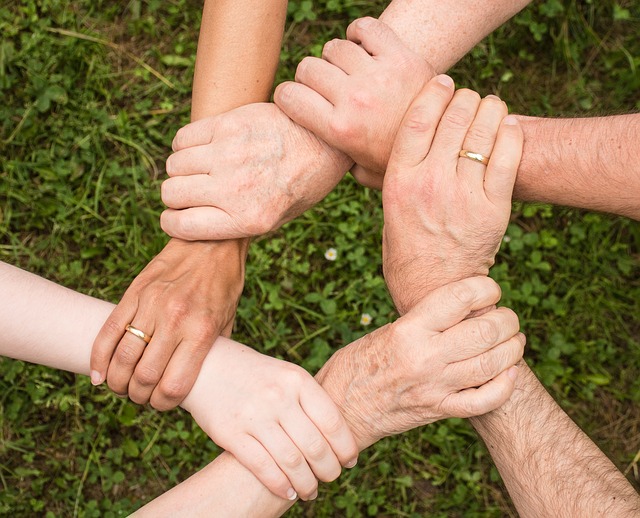The more uncertain the future, the more anxious we can become. Anxiety is exacerbated by the depression experienced through isolation (enforced or self-isolation), loss of a job or loss of connection with others. We can adopt mindfulness meditation to reduce our self-defeating narratives and undertake mindfulness practices to improve our mental health and wellbeing. We can supplement these meditations and practices with other activities that help to build and maintain a positive mindset and develop our personal resilience.
Activities to build and maintain a positive mindset
The essential element here is to engage in activities that you find enjoyable and inspiring – activities that tend to take you outside of yourself and away from self-absorption. Clearly, the choice of activities is influenced by personal preference. Here are some possible activities to choose from:
- Listening to classical music: this type of music can be very calming. Listening to Mozart’s music, for example, can be relaxing and improve your concentration and brain power [I write my blog posts to the sound of Mozart playing in the background]. Many shared music platforms exist now, and in Australia we have the amazing ABC Classical radio station that among other things broadcasts superb live classical concerts from all around the world. Classical music can build the capacity for deep listening – a skill that enables you to be fully in the present moment and to build intimate and lasting relationships (a very rewarding fringe benefit and residual skill).
- Listening to TED Talks© – these talks are on numerous subjects and number in the thousands. They are informative, uplifting and inspiring. Recently, because so many people are confined to their homes, TED has introduced what it calls TED Connects – free, daily conversational sessions which feature “experts whose ideas can help us reflect and work through this uncertain time with a sense of responsibility, compassion and wisdom”. Susan David, Harvard University psychologist, presented the first of these virtual conversations on 23 March 2020 when she spoke about emotional agility, dealing with anxiety, talking to your children about their emotions, focusing during the current crisis and small acts of kindness, especially to those working on the front lines”. If you are a person who prefers auditory and visual formats over the written word, then this superb series may help you to build courage, joy and resilience in this challenging time of the Coronavirus.
- Virtual tours of museums, zoos and theme parks – If you are visual person who enjoys “looking around” and viewing the antics of animals or appreciating fine art, then a virtual tour may be for you to help uplift your spirits. Some websites provide a list of virtual tours that you can enjoy. Other websites focus on one type of virtual tour such as online tours of art galleries or virtual tours of online zoos, some with presentations and talks to entertain your children stuck at home. Zoos Victoria in Australia are dedicated to fighting extinction of wildlife and provide a series of webcams from three zoos featuring various animals – you can take your pick of your favourite, e.g. the popular “penguin cam”.
- Small acts of kindness – everyday you can read in the newspaper or hear on the news examples of small acts of kindness, people going out of their way to help someone else in need (even when they themselves are feeling the effects of various forms of deprivation and uncertainty at this time). Some websites are dedicated to sharing random acts of kindness to inspire and stimulate others to take compassionate action withing their arena of influence. A good place to start thinking about your own random acts of kindness is the kindness blog which is full of great ways to show kindness to family and friends, seniors and others.
- Reading literature sourced online – besides accessing your own library of books and the novels/biographies you have never got around to reading because of your busyness, you can access heaps of resources online in terms of e-books, audiobooks and eMagazines. While many public libraries have closed their physical buildings to subscribers, they usually offer material that can be accessed online, including music and audios. The National Library of Australia, for example, offers free online access to e-books and other digitised material to Australian residents. Local councils typically provide free access to e-books, audiobooks and emagazines.
- Writing songs or journals – these are mechanisms for expressing your feelings, being able to name your feelings to better deal with them. They can also serve to stimulate emotion in others and help them face up to what they are actually feeling, but not expressing.
Reflection
These are very uncertain times and uniquely demanding physically, emotionally, mentally and financially. Whatever we can do to build up our positive mindset will assist us to develop the resilience to meet these challenges. Creativity flourishes in times of necessity as does kindness. As we grow in mindfulness through meditation, mindfulness practices and enjoyable/positive activities, we develop the capacity to find new ways to work and live in stringent conditions and resume our normal life with a strengthened resolve, increased gratitude and heightened adaptability once the Coronavirus is under control.
________________________________________
By Ron Passfield – Copyright (Creative Commons license, Attribution–Non Commercial–No Derivatives)
Disclosure: If you purchase a product through this site, I may earn a commission which will help to pay for the site, the associated Meetup group and the resources to support the blog.



